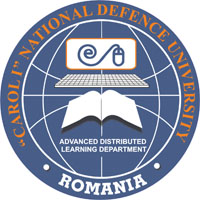DEVELOPMENT OF CROSSSKILLS HARNESSING EDUCATIONAL VALENCES OF INTERNET IN NATIONAL CURRICULUM
DEVELOPMENT OF CROSSSKILLS HARNESSING EDUCATIONAL VALENCES OF INTERNET IN NATIONAL CURRICULUM
Author(s): Roxana Constanța Enache, Alina CrişanSubject(s): Education
Published by: Carol I National Defence University Publishing House
Keywords: curricular areas; cross-skills; new skills; teaching roles
Summary/Abstract: As follows from the analysis introducing Internet facilitates certain structural changes in schools and, used correctly and efficiently, it may lead to the achievement of fundamental educational purposes such as: development of basic skills, critical and creative thinking, the collaborative activities and teamwork skills, selection and use of appropriate strategies to solve problems, a positive attitude to school subjects and education, providing training for lifelong learning. The issue of the use of new information technologies and the Internet in particular in education remains a matter of pedagogical research for the future in terms of the contribution it can bring to quality and efficiency of education, in terms of access and equity increased by rapid technological advances. The Internet positively influences and facilitates education and active learning, creates collaborations and constructively develops both students and teachers complementary competences. At the same time, the internet can train them in activities involving specific roles such as councillor, teacher’s facilitator, or to how to directly take action to assume responsibility for students. The important factors are the strategies used, and the results show that when taught appropriately, with correct social integration and social skills training, both Pedagogical and Psychological teachers benefitted with IT and Internet usage, even in the initial and continous training.
Journal: Conference proceedings of »eLearning and Software for Education« (eLSE)
- Issue Year: 11/2015
- Issue No: 03
- Page Range: 194-198
- Page Count: 5

